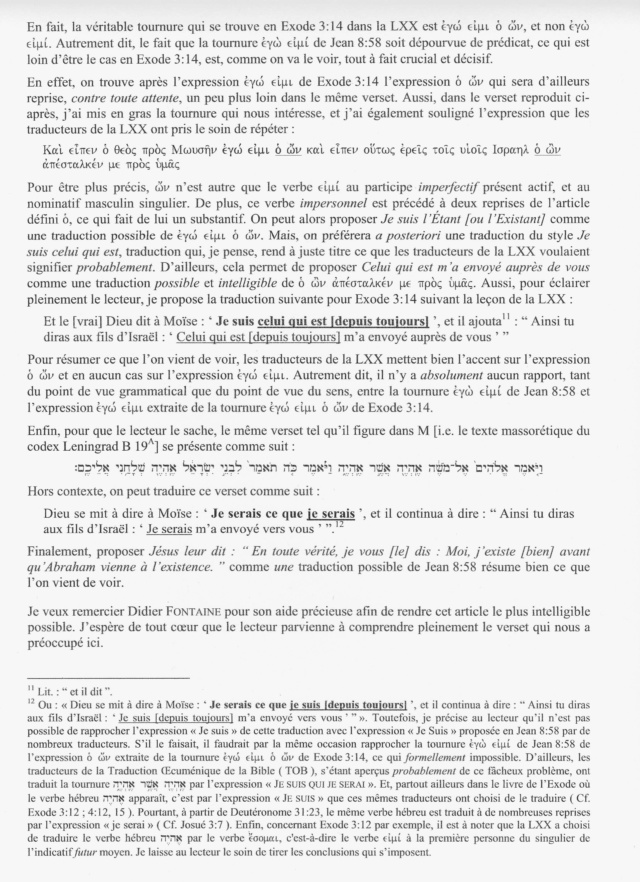IVe-Ve siècle " avant qu'Abraham fût, j'ai été " Syriaque : A Translation of the Four Gospels from the Syriac of the Sinaitic Palimpsest, par A. Lewis. - London 1894.
Ve siècle " avant même qu'Abraham ait paru, j'étais ": Syriaque (Cureton): Evangelion da-Mepharreshe, par F. Burkitt. - Cambridge 1904. - Vol. 1.
Ve siècle " avant qu'Abraham ait existé, j'étais "; Peshitta (syr.) :The Syriac New Testament Translated into English from the Peshitto Version, par J. Murdock. - Boston 1896. - 7e éd.
Ve siècle " avant qu'Abraham ait paru, j'étais "; Géorgien : The Old Georgian Version of the Gospel of John, par R. Blake, M. Brière, dans " Patrologia Orientalis ". - Vol. XXVI, fasc. 4. - Paris 1950.
VIe siècle " avant qu'Abraham soit né, j'étais " Éthiopien : Novum Testamentum Domini nostri et servatoris Jesu Christi AEthiopice, par T. Platt. - Londres 1830.
L'action exprimée en Jn 8:58 a commencé " avant qu'Abraham vienne à l'existence " et elle est toujours en cours. En pareille circonstance (éïmi), qui est à la première personne du singulier de l'indicatif présent, peut se rendre tantôt par le présent, tantôt par le passé composé. On trouve des exemples de cette syntaxe en Lc 2:48 ; 13:7 ; 15:29 ; Jn 5:6 ; 14:9 ; 15:27 ; Ac 15:21 ; 2Co 12:19 ; 1Jn 3:8.
À propos de cette construction, voici ce que dit G. Winer (A Grammar of the Idiom of the New Testament, Andover 1897, 7e éd., p. 267) : " Quelquefois le présent comprend aussi un passé (Mdv. 108), c'est-à-dire quand le verbe exprime un état qui a commencé à tel moment antérieur mais qui se prolonge encore - un état dans sa durée ; comme en Jn xv. 27 ap' arkhês mét' émou ésté, viii. 58 prin Abraam génésthaï égô éïmi. " (voir aussi A Grammar of the New Testament Diction; p. 282; A Greek Grammar to the New Testament; p. 131; W. Trollope)

 Accueil
Accueil


